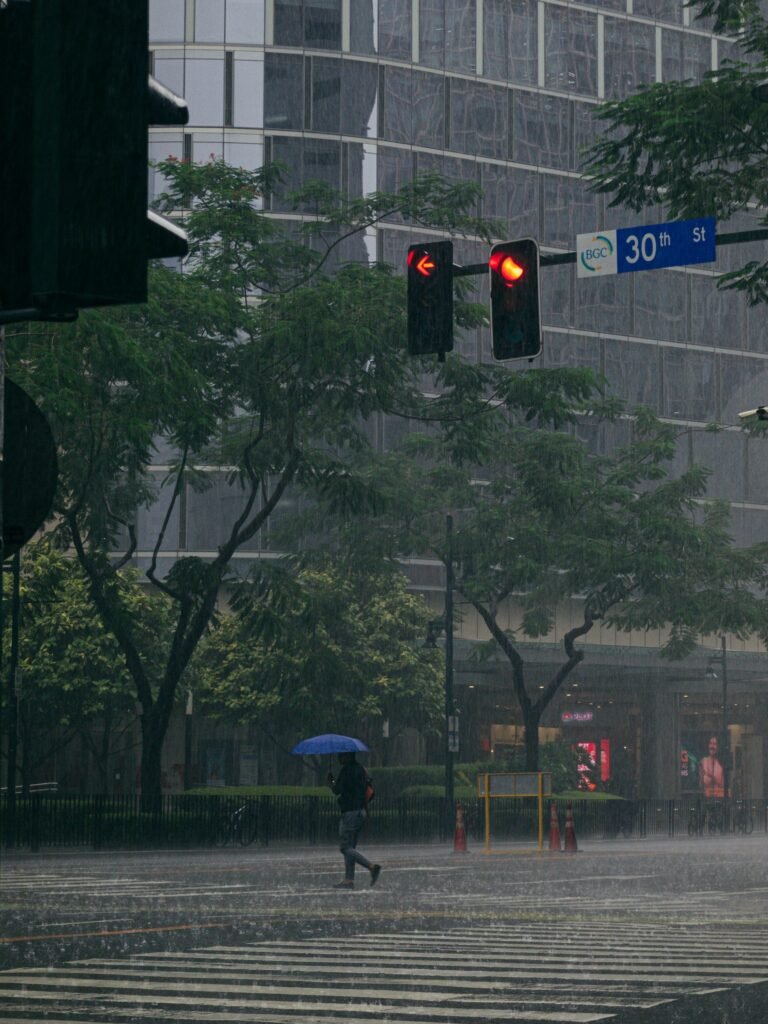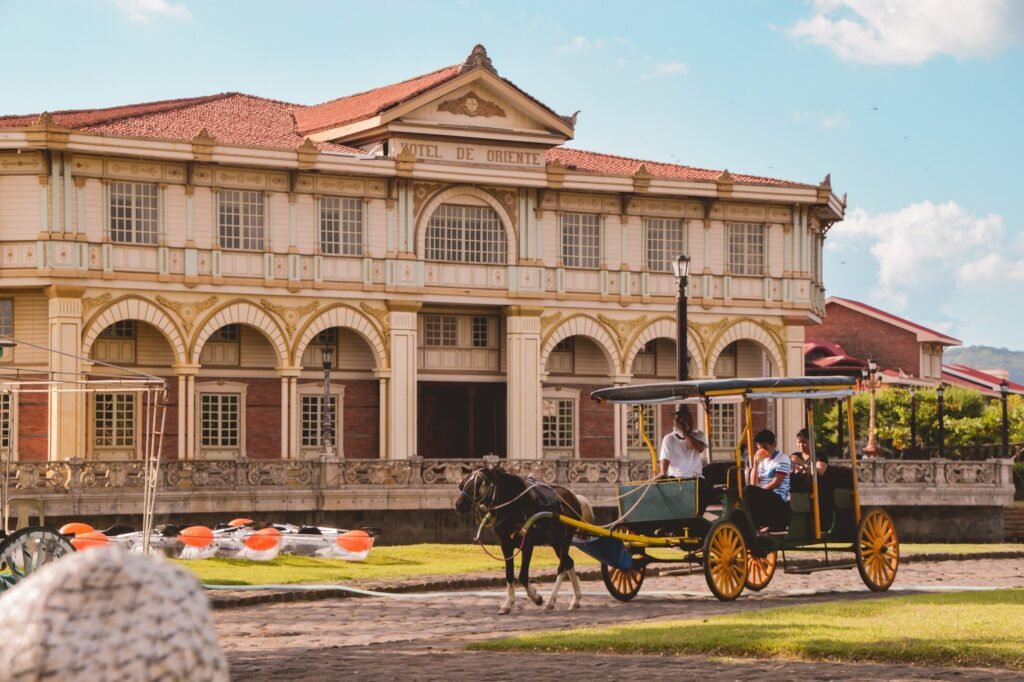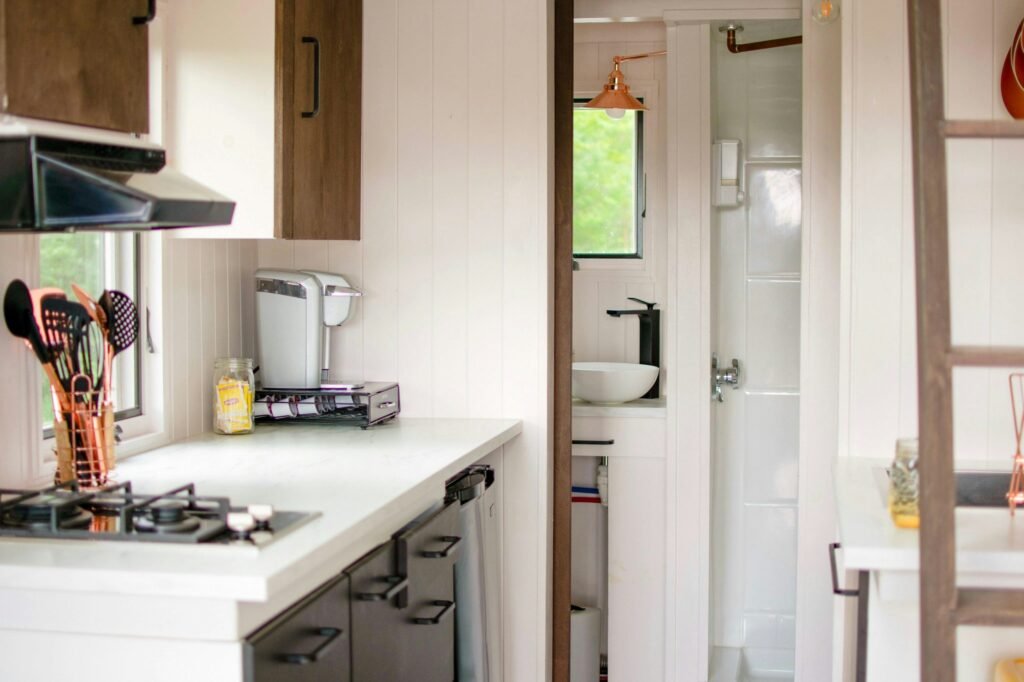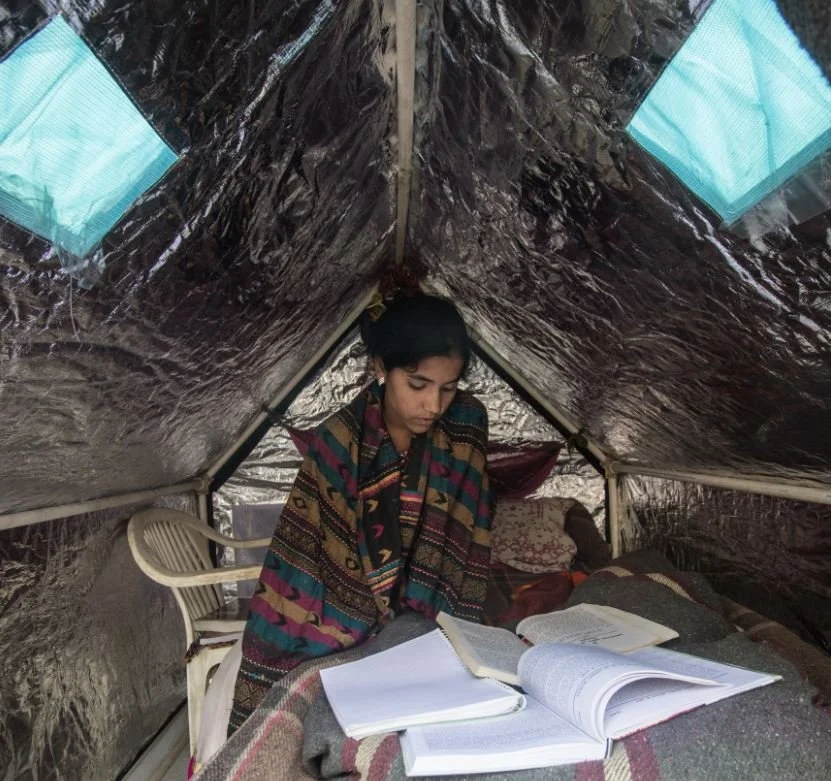
As I start my Monday morning, going through the pile of unread emails, there was one that stood out. This was from my colleague Asa, with some recent pictures of our weatherHYDE shelters. For those who don’t know, weatherHYDE is a temporary shelter designed to save lives of the homeless and vulnerable living in extreme weather conditions. This winter we have provided almost 500 weatherHYDEs to homeless families across the world.
This picture of Sandhya*, a young homeless girl studying inside a weatherHYDE, caught my attention. Her family has put a chair and a bed inside this tiny tent enabling her to study. This image is a reflection of what this shelter could mean to a homeless person. It’s more than just a temporary shelter, it’s their home and an opportunity for a better tomorrow. It could be their only chance to break the cycle of poverty, get an education, a job and a more positive future.
Since our pilot with 15 families in Delhi in 2016, I have carried with me many such inspiring ‘customer’ stories around the world. I have seen weatherHYDEs being used as a study, bedroom, dressing room, shower and even a shop. However, these stories have been challenged by all those who have the resources to help millions like Sandhya. This includes governments, global humanitarian agencies and local non-governmental organisations. Basically, anyone who has the mandate to save homeless lives. They find a family shelter like weatherHYDE inefficient and costly, favouring large communal shelters instead. They also think family shelters will be abused for drugs and prostitution. Interestingly there is no evidence of this misuse while there is enough evidence that the homeless families do not prefer communal shelters for safety and hygiene reasons. Humanitarian agencies often find it does not comply with their current policies and strategies of providing shelters. Maybe they are right, but it does not comply because their experts at the time of writing policies had not conceived a solution like weatherHYDE which combines all-weather protection into a single versatile shelter. Local non-governmental organisations are satisfied with their decade-old methods of distributing supplies such as blankets every winter. It is not because blankets are an effective solution, but it is because they have a donor base which funds blankets. This year like every year, hundreds of homeless died in winters across north India and almost all of them were found sleeping under blankets.
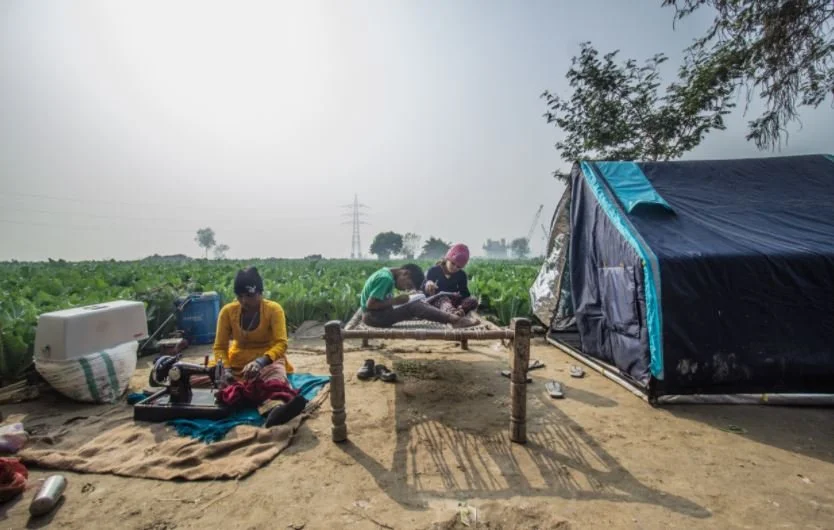
This begs the question, who is my ‘real’ customer? Should billionBricks be designing for the homeless families we work with and for; or for the governments, agencies and organisations who are closest to the problem of homelessness? While I grapple with this dilemma every day in my job, this Monday morning, I felt relieved as I looked at Sandhya’s picture. As she reads, I hope that she is not thinking about the policies and strategies that continue to keep her homeless, but about studying, finding a job and soon finding herself a ‘real’ home.
The weatherHYDE movement has been made possible because of hundreds of individuals like you. You can continue to support it at www.weatherhyde.org/shop
*name has been changed

